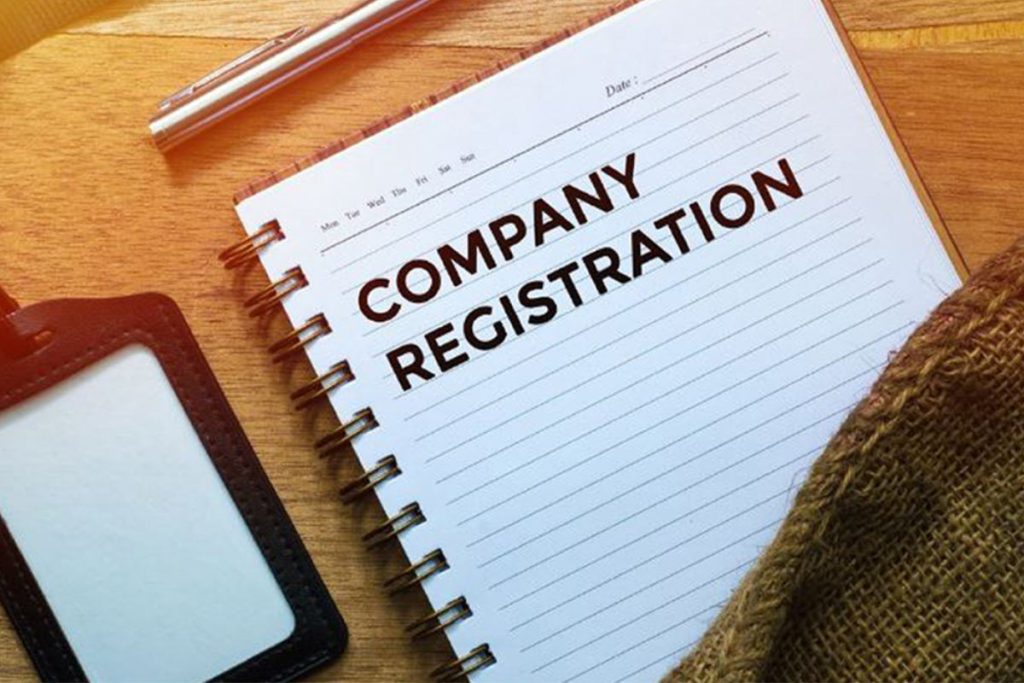+968 9596 3381
Phone Number
[email protected]
Email Address
Mon - Thu: 8:00 - 5:00
Online store always open
Phone Number
Email Address
Online store always open
WhatsApp Us Today
Drop Us an Email Today
Google Map Location
Saturday to Thursday

Oman has embraced digital transformation, making it easier than ever to register a company online. Entrepreneurs and investors can now complete the entire business registration process from anywhere in the world through the Invest Easy portal provided by the Ministry of Commerce, Industry, and Investment Promotion (MoCIIP).
If you’re looking to set up an LLC, Sole Proprietorship, Branch Office, or Free Zone Company, this guide will walk you through the online company registration process in Oman, its requirements, costs, and benefits.
Oman’s government has made significant strides in digitizing its business setup processes, making it easier than ever to register a company online. Whether you’re a local entrepreneur or a foreign investor, the online registration system offers a convenient and efficient way to establish your business in Oman. This guide will walk you through the step-by-step process of registering a company online in Oman in 2025, including the required documents, costs, and tips for a seamless experience.
Online applications reduce paperwork and processing time.
Most businesses receive approval within 3-7 business days.
Foreign investors can complete company registration remotely without visiting Oman.
No need to submit hard copies of documents in the initial stages.
Avoids unnecessary middlemen fees and legal processing costs.
Standard government registration fees apply.
Entrepreneurs can track their application in real-time via the Invest Easy portal.
Automatic alerts and notifications ensure timely follow-ups.
Visit https://inveseasy.gov.om and sign up for an account.
Use an e-Residency card (if an Omani resident) or log in with a registered email for foreign investors.
Select the appropriate legal entity:
| Business Type | Ownership | Best For |
|---|---|---|
| Limited Liability Company (LLC) | Up to 70% foreign ownership (or 100% in certain sectors) | SMEs, general businesses |
| Sole Proprietorship (SPC) | 100% owned by an individual | Freelancers, independent consultants |
| Branch Office | Fully owned by a foreign parent company | International business expansion |
| Free Zone Company | 100% foreign ownership | Trading, logistics, and manufacturing |
Enter your preferred business name via the online portal.
Ensure it follows Omani naming regulations.
Approval takes 1-2 business days.
Passport copies of all shareholders and directors.
Memorandum of Association (MOA) & Articles of Association (AOA).
Lease agreement for the registered business address.
Capital deposit certificate from an Omani bank.
Sector-specific approvals if applicable (for industries like banking or healthcare).
Business registration fees vary based on entity type.
Payments can be made online via debit/credit card or bank transfer.
Once all approvals are received, your company will be issued a Commercial Registration (CR) Certificate.
The CR allows you to legally operate in Oman.
Apply for a Tax Identification Number (TIN) through the Oman Tax Authority.
Register for 5% VAT (if required).
Use the CR certificate to set up a corporate account in an Omani bank.
Some industries require additional licenses, such as:
Tourism License (Ministry of Heritage & Tourism)
Industrial License (MoCIIP)
Health & Medical License (Ministry of Health)
Do not hesitate to contact us. We’re a team of experts ready to talk to you.




Best for: Small and medium-sized businesses.
Ownership: Requires at least two shareholders; foreign investors can own up to 70% (or 100% in certain industries or free zones).
Liability: Limited to shareholders’ capital contributions.
Taxation: Subject to 15% corporate tax; exempt from personal income tax.
Key Benefits: Flexible ownership structure, ability to operate across Oman, and access to government contracts.
Challenges: Requires an Omani partner (30% ownership) unless in an approved industry for full foreign ownership.
Best for: Small businesses and freelancers.
Ownership: Fully owned by one individual (either an Omani national or a GCC citizen).
Liability: Owner is personally liable for business debts.
Taxation: Subject to corporate tax if turnover exceeds OMR 100,000 per year.
Key Benefits: Simple setup process, full control, and low initial costs.
Challenges: High financial risk due to unlimited liability.
Best for: Large-scale businesses looking for public or private investment.
Ownership: SAOC (Closed Joint Stock Company) requires a minimum of 3 shareholders; SAOG (Public Joint Stock Company) is publicly listed and requires at least 10 shareholders.
Liability: Limited to shareholders’ capital contributions.
Taxation: Subject to 15% corporate tax.
Key Benefits: Ability to raise capital through the stock exchange and attract large investors.
Challenges: High capital requirements (OMR 500,000+ for SAOC, OMR 2 million+ for SAOG).
Best for: Foreign companies expanding into Oman.
Ownership: Fully owned by a foreign parent company.
Liability: Parent company is liable for all operations.
Taxation: Subject to 15% corporate tax on locally earned profits.
Key Benefits: No need for an Omani partner, direct market entry.
Challenges: Limited operational scope; must conduct activities similar to the parent company.
Best for: Market research and promotional activities.
Ownership: Fully owned by a foreign parent company.
Liability: Parent company remains liable.
Taxation: No corporate tax, as it cannot generate revenue.
Key Benefits: No corporate tax; ideal for companies exploring the Omani market.
Challenges: Cannot engage in commercial transactions or profit-generating activities.
Best for: Businesses focused on international trade, manufacturing, or logistics.
Ownership: 100% foreign ownership allowed.
Liability: Limited liability for shareholders.
Taxation: 0% corporate tax for up to 30 years and duty-free import/export.
Key Benefits: No Omani partner required, tax benefits, simplified regulations.
Challenges: Cannot operate directly in Oman’s mainland unless partnered with a local distributor.





Registering a company online in Oman is a seamless process when done correctly. Let setupinoman guide you through the digital registration process, licensing, and compliance requirements.
The online company registration process in Oman takes approximately 3-7 business days, depending on the complexity of the application and industry approvals.
| Process Stage | Estimated Time |
| Trade Name Reservation | 1-2 Days |
| Document Submission & Verification | 2-4 Days |
| Final Registration & CR Approval | 1-2 Days |
Ensure all documents are translated into Arabic and notarized before submission.
Selecting the wrong legal entity may lead to unnecessary taxation or ownership restrictions.
Registering for VAT and corporate tax should be done immediately after company formation to avoid penalties.
A valid lease agreement is required for CR approval.
Virtual office options are available if you do not require physical premises.
At setupinoman, we simplify the company registration process in Oman online by offering:
✅ Business Registration & Licensing – Assistance with LLC, Free Zone, and Branch Office setup.
✅ Trade Name Reservation – Ensuring compliance with Omani regulations.
✅ Legal & Notarization Services – Document verification and Arabic translation.
✅ Corporate Banking Support – Assistance with opening business bank accounts.
✅ Tax & Compliance Assistance – Ensuring proper VAT and corporate tax registration.


Yes, foreign investors can register an LLC, Branch Office, or Free Zone Company through the Invest Easy portal.
Most registrations are completed within 3 to 7 business days.
Passport copies of shareholders
Memorandum & Articles of Association
Lease agreement for office space
Sector-specific approvals (if needed)
Yes, a business must have a registered address, but virtual offices are permitted in free zones.
No, a valid Commercial Registration Certificate is required to open a corporate bank account in Oman.
To register a company online in Oman, you’ll typically need the following documents:
Passport copies of shareholders and managers
Proof of address (e.g., utility bill or rental agreement)
Memorandum of Association (MOA)
Lease agreement for office space (if applicable)
Feasibility study (for certain activities)
Time-Saving: Complete the process in as little as 3–5 days.
Cost-Effective: Save on travel and administrative expenses.
Real-Time Tracking: Monitor your application status online.
Eco-Friendly: Reduce paper usage with digital documentation.
24/7 Accessibility: Access the portal anytime, anywhere.
Technical Issues: Ensure you have a stable internet connection and compatible browser.
Document Preparation: Gathering and digitizing documents can be time-consuming.
Language Barrier: The portal is primarily in Arabic, so non-Arabic speakers may need assistance.
Use a Reliable Internet Connection: Avoid disruptions during the application process.
Double-Check Documents: Ensure all documents are complete and uploaded in the correct format.
Seek Professional Help: Consider hiring a business setup consultant for guidance.
Keep Track of Deadlines: Monitor your application status and respond promptly to any requests.
Oman might be the ideal springboard for business setup in the Gulf. Positioned at the intersection of Asia, Africa, and Europe, Oman is rapidly becoming a prime business hub. Here’s why setting up a company in Oman can be a game-changer:
100% Foreign Ownership: Oman offers foreign investors the opportunity for 100% company ownership in the mainland as well as in Sohar Free Zone and other free zones in Oman, alongside significant tax benefits and a highly supportive business environment.
Strategic Location: Oman’s central position provides easy access to markets across Asia, Africa, and Europe, making it an excellent location for companies engaged in international trade and export.
Thriving Economy: Oman’s economy is on a growth trajectory, with major investments in tourism, logistics, and renewable energy. This economic dynamism creates fertile ground for new businesses in Oman to grow and prosper.
Investor-Friendly Policies: Oman offers a range of incentives for foreign investors, including tax breaks, special free zones for business, and a streamlined company formation in Oman process to ensure a smooth setup experience.
Ease of Doing Business: With straightforward regulations and a clear business registration process in Oman, Oman’s business landscape is easier to navigate than in many neighboring countries, allowing companies to start quickly and focus on growth.
Full Control: Certain sectors in Oman allow 100% foreign ownership, enabling you to retain full control over your operations and decision-making without the need for a local partner.
Political and Social Stability: Known for its stable government and low levels of social unrest, Oman offers a safe and secure environment for business operations, ideal for long-term investments.
Skilled Workforce: Oman has a well-educated and skilled workforce, giving businesses access to talented individuals necessary for success in diverse industries.
Choosing Oman for your business setup can provide unique advantages and long-term growth opportunities. With a favorable location, robust infrastructure, and investor-focused policies, Oman is a strategic choice for any business looking to expand in the Gulf region.
Oman’s business environment is increasingly investor-friendly, with flexible tax and labor regulations designed to support new initiatives of company formation in Oman as they establish and grow. Understanding these regulations, especially around corporate tax and labor requirements, can help you make the most of Oman’s pro-business landscape.
Oman’s corporate tax system is simple and favorable, particularly for new businesses:
These straightforward rates make tax planning easier for businesses of all sizes, allowing you to focus on growth and expansion.
VAT is set at a competitive rate from tax authority of Oman, applying only to local sales and certain services:
Oman’s labor laws are business-friendly from ministry of labor of Oman, particularly for new investors looking to establish a workforce:
This gradual approach to Omanization makes it easier for foreign businesses to adapt while fulfilling local employment initiatives at a comfortable pace.
Oman offers a balanced workweek, with standard working hours that align with international norms:
Do not hesitate to contact us. We’re a team of experts ready to talk to you.
At Setup in Oman, we’re passionate about helping your business dreams take root in the fertile ground of the Omani market. We don’t just handle paperwork – we become your trusted partner on the path to success.
Fill out our quick and easy contact form below. Briefly tell us about your vision and goals, and we’ll be in touch shortly to discuss a personalized plan for your success.
Al-Khuwair, Muscat, Sultanate of Oman